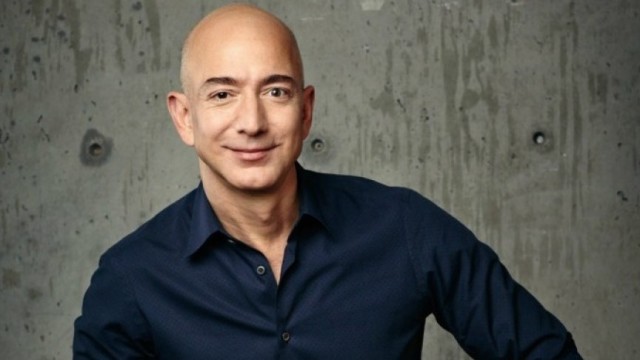WSJ: Amazon met with startups about investing – then launched competing products
Over 20 entrepreneurs interviewed by the Wall Street Journal accuse Amazon of making use of investments to steal competitors ’products.
Entrepreneurs often meet with representatives of giant companies, in a search for investment in their product, collaborate with them and sometime even purchase them.
Naturally, quite a few confidential data are revealed in these meetings, with a mutual understanding that the established company will not make any other use of them. A new investigation raises some questions about Amazon’s conduct and the contacts it has had with small startups.
According to an investigation by the Wall Street Journal, Amazon’s venture-capital fund met with startups throughout the year, under the guise of a possible investment or interest in a particular product, only to eventually develop those products in-house. This is how Amazon forced some to disappear from the market.
One of the examples cited by WSJ, was a story about DefinedCorp, a startup founded in 2015 that develops a Crowd-as-a-Service intelligent data platform to accelerate enterprise data training and modeling.
Amazon Alexa Fund invested in the company in 2018, and received an access to a great deal of information about the intellectual property of the company and its financial situation.
In April, Amazon’s cloud services, AWS, launched a product named A2I. An artificial-intelligence product that does almost exactly what that startup does.
Daniela Braga, CEO of DefinedCorp, said that Amazon’s product competes directly with the product developed by his company. As a result DefinedCorp restricted Amazon’s access to information about its company, along with diluting their holdings in the company by 90% through a new round of capital raising.
The WSJ emphasizes that Braga’s case is not unusual case and that they have evidence from more than 24 entrepreneurs, investors and investment consultants, all of whom claim that Amazon used the idea of possible investment in companies to develop competing products.
In response to DefinedCorp’s case, Amazon said that the company does not use confidential information that companies share to build competing products.
According to the evidence, Amazon’s decision of a competing product has in some cases led to the elimination of competition. In other cases, it has met with startups about possible takeovers, figured out how their technology works and then refused to invest in them when it launches a competing product at a later stage – some developers and investors say.
Meet under a confidentiality agreement – until Amazon cancels it
Another case in which a meeting between Amazon and a startup seemed to generate investment, but in the end led to the death of a product. This is the story of Ubi, a smart speaker developed by a Canadian startup headed by Leor Grebler. Ubi offered large chunks of the functionality of Amazon’s Echo speakers back in 2012, when the two parties began meeting under a confidentiality agreement they signed.
Gerbler told the WSJ that he thought the meetings under the guise of secrecy would lead to the company’s acquisition or acquisition of the rights over Ubi to use it in Amazon products. He further said that the purpose of the agreement was not to misuse the information in meetings on behalf of both parties and that they met five times – until everything changed.
He says that at the sixth meeting, several senior executives at Amazon came, including those who worked on the Echo, and the company informed him before the meeting that they were canceling the confidentiality agreement.
The meeting included a purposeful display of the product, with Grebler thinking that its ultimate goal – especially in light of the secrecy – is the acquisition of Ubi. He also says that in meetings under the confidentiality agreement, he revealed a lot of information about the product and his plans for the future – including its use to make online purchases and stream music.
In practice, relations between the parties began to shrink after that last meeting – when in 2014 Grebler finds out in an email from his brother that Amazon has announced a competitor to Ubi. He considered suing Amazon, but realized he did not have enough resources to do so, and six months after the Echo hit the market – Ubi stopped producing the smart speaker and made a pivot for the voice aid field.
Business Insider says Ubi went on sale well before the release of Amazon ‘s Echo in 2015.
Amazon has told WSJ that work on the Echo speaker began even before they met with Grebler and that in meetings between the parties, Amazon representatives informed it that it was working on a competing product.
As mentioned, these are not all stories – and feel free to read some more as they appear in the WSJ article. The problem that emerges from these stories is the power of large companies, which can produce a similar competing product, when in practice small startups cannot compete with them – or even sue them for intellectual property theft because of the legal costs that will lead them to bankruptcy.
Read more about: Amazon, Jeff Bezos




